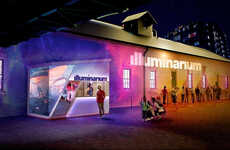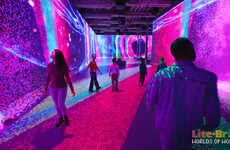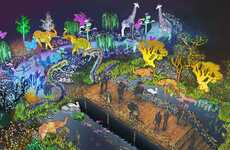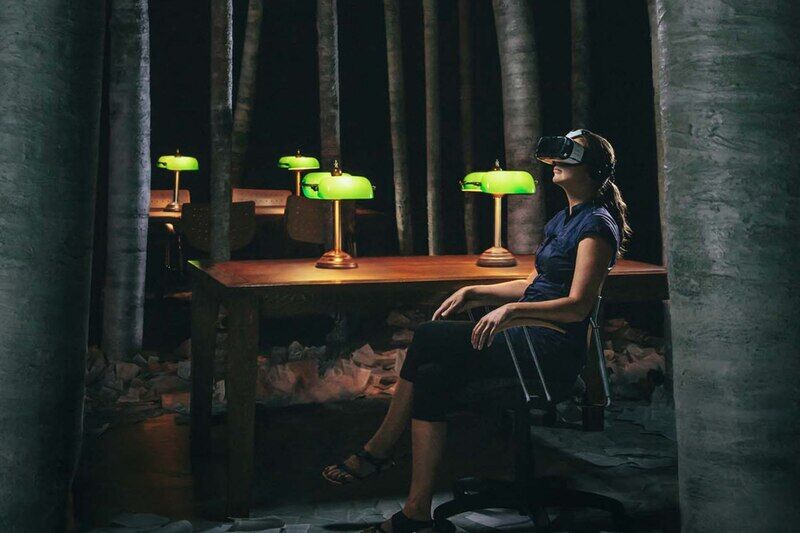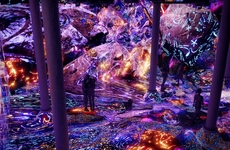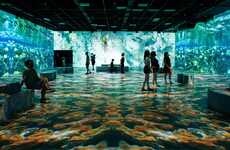
The Library at Night is a Journey to 10 Global Libraries Across Time
Laura McQuarrie — February 8, 2022 — Tech
References: lighthouseimmersive & curiocity
The Library at Night is a brand-new experience from the Lighthouse Immersive, the company behind other immersive and sensory virtual reality journeys like Immersive Klimt and Immersive Van Gogh. This new one was created by Canadian theater director and actor Robert Lepage and the inspiration for the event came from the original The Library at Night book penned by Argentinian author Alberto Manguel.
The VR experience in Toronto gives book lovers the chance to do the impossible by traveling to 10 libraries throughout time and around the world. The virtual journey includes stops at Japan's Hasedera Temple, Mexico's Vasconcelos Library, Canada's Library of Parliament and the Library of Congress in Washington, as well as the Nautilus from Twenty Thousand Leagues Under the Seas and the Alexandria Library, past and present.
The VR experience in Toronto gives book lovers the chance to do the impossible by traveling to 10 libraries throughout time and around the world. The virtual journey includes stops at Japan's Hasedera Temple, Mexico's Vasconcelos Library, Canada's Library of Parliament and the Library of Congress in Washington, as well as the Nautilus from Twenty Thousand Leagues Under the Seas and the Alexandria Library, past and present.
Trend Themes
1. Virtual Reality Library Tours - Virtual library tours offer a unique opportunity to experience historic libraries from around the world.
2. Immersion-based Experiences - The popularity of immersive experiences in virtual reality opens up opportunities for libraries and other institutions to offer unique and engaging events.
3. Remote Education - Remote learning has become increasingly feasible with immersive VR library experiences, creating opportunities for educational institutions to expand online curriculum.
Industry Implications
1. Library - Library institutions can benefit from offering virtual reality tours that expand their audience and improve accessibility to historic sites.
2. Tourism - Immersive VR experiences offer tourism an opportunity to generate interest in a unique type of site seeing.
3. Education - Education institutions can enhance the curriculum through offering remote learning opportunities in virtual reality.
6.6
Score
Popularity
Activity
Freshness


